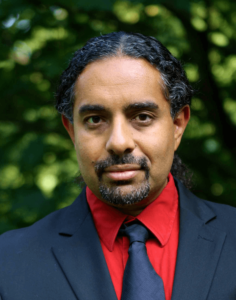Noah Smith | noahpinion Link to article
My favorite futurist tells me how to beat Putin, solve climate change, and build the future

When I want to know what the future is going to be like, I go ask Ramez Naam. Over the years, his spyglass has seemed to peer just a little farther into the future than other people’s.
My favorite example: In 2011 he wrote a guest post for Scientific American entitled “Smaller, cheaper, faster: Does Moore’s law apply to solar cells?” that alerted the world to the startling, consistent, and seemingly unstoppable cost declines for solar energy. This came at a time when almost everyone in public discourse still thought of solar as an unworkably expensive pipe dream. But Ramez (or “Mez”, to his friends) was right. Over the next decade, his prediction became conventional wisdom, not just for solar but for batteries as well. The resulting explosion in solar installation and electric vehicles has utterly changed scientists’ outlook for climate change — catastrophe may still strike, but the most apocalyptic scenarios now look distinctly unlikely. This isn’t Mez’ doing, of course, but he saw it before others did.
Why is Mez so good at predicting the future of technology? Part of it is his personal experience — as a Microsoft engineer, he led the teams working on a number of core software products. But he’s a dreamer as well as a doer — his science fiction series, the Nexus trilogy, deserves to be among the classics of the cyberpunk genre. He has also written two nonfiction futurist books, More Than Human: Embracing the Promise of Biological Enhancement and The Infinite Resource: The Power of Ideas on a Finite Planet. Readers of my blog will notice that biological enhancement and sustainable/renewable technology are two of the things I’m most excited about. Well, it’s because I read Ramez Naam.
In this email interview, Mez and I discuss a lot of things related to the future of technology — how to get off oil and gas and weaken Vladimir Putin’s regime, how to decarbonize the U.S. rapidly, what technologies to be optimistic about, and how to get involved building the techno-optimist future. As always, I learned a lot.

